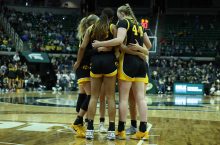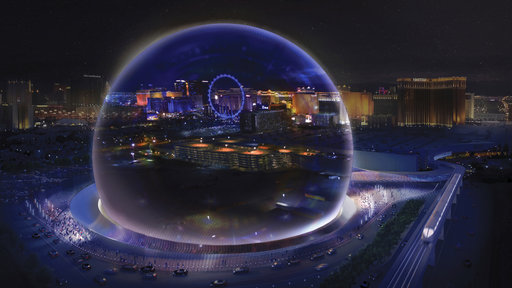Buck Wargo, CDC Gaming Email, LinkedIn, and more Starting with the integrated resort, Las Vegas has long had a reputation of exporting that model to the rest of the world. After successfully hosting its second F1 race last month, it has now added sports, calling itself the Sports and Entertainment Capital of the World in […]

Starting with the integrated resort, Las Vegas has long had a reputation of exporting that model to the rest of the world. After successfully hosting its second F1 race last month, it has now added sports, calling itself the Sports and Entertainment Capital of the World in its global advertising campaign.
Chris Grove, a partner at Acies Investments, co-founded with former MGM Resorts International CEO Jim Murren, has been making the case that Las Vegas’s model can now be referred to as a sports resort. And like everything else the city does, it’s emulated by the global gaming industry.
In the 1990s, gambling accounted for two-thirds of Las Vegas revenue. Today, two-thirds of revenue is made from entertainment, dining, retail, and other amenities. The transition to the integrated-resort and destination-casino model started with the Mirage in November 1989, with headliners Siegried & Roy.
Las Vegas has also influenced global gambling markets with its focus on conferences and meetings, making it one of the top convention destinations in the country, filling rooms midweek. Some six million of its 40-million-plus visitors a year come to Las Vegas for business meetings.
“This blend of top-tier live sports, casino gaming, and decadent resort amenities encapsulates the pinnacle of entertainment following the well-known tradition of Vegas leading the charge in the regulated gambling industry,” Grove said. “The sports resort, a harmonious integration of live sports, casino indulgence, and resort luxury, could potentially be the next major trendsetter in Las Vegas’s dynamic entertainment landscape.”
History of Las Vegas sports
For decades, Las Vegas sporting events were limited to professional boxing matches and became known as the Boxing Capital of the World, featuring such fighters as Muhammad Ali, Sugar Ray Leonard, Mike Tyson, Floyd Mayweather and Oscar De La Hoya. Mixed martial arts burst onto the scene in the 2000s to add to that fight reputation.

Despite a dalliance with the NBA, which hosted its All-Star game in 2007 and other than a couple of exceptions (NASCAR and the National Finals Rodeo), professional sports shunned the city, because of the stigma of gambling.
The University of Nevada Las Vegas basketball team burst on the scene in 1976 with a Final Four appearance and turned into a dominant national power in the 1980s and early 1990s. In-season college basketball tournaments arrived in the 2000s and later, the post-season conference tournaments relocated to Las Vegas casino arenas, putting the spotlight on mainstream American sports.
Finally, in 2016, the NHL awarded the Golden Knights franchise to the city, with home ice at T-Mobile, a 20,000-seat arena that opened that same year 2016 with MGM Resorts International as a partner.
A year later, the NFL approved the relocation of the Oakland Raiders to Las Vegas starting in the 2020 season to play at the $2 billion 65,000-seat taxpayer-funded Allegiant Stadium. The public financing overcame the NFL’s concern about an association with gambling.
In 2018, the U.S. Supreme Court overturned a federal ban on single-wager sports betting outside of Nevada, which quickly leveled the playing field, dispersing the lingering stigma. The Pac 12 held its college football championship in Allegiant Stadium starting in 2021 and the NCAA announced its college basketball championship tournament games and Final Four could be held in Las Vegas and will do so in 2028 at Allegiant.
Also in 2028, the Oakland A’s Major League Baseball team will make its debut in a $1.5-billion 30,000-seat stadium on the former site of the Tropicana Las Vegas. Bally’s will rebuild a casino resort on the site.
It’s expected that the NBA won’t be too far behind, as the city awaits a league expansion. A Las Vegas team could play in one of two proposed arenas, one as part of a resort at the north end of the Strip next to the Fontainebleau Las Vegas.
“Las Vegas has consistently been an exporter of different innovations in entertainment,” Grove said. “The idea of the musical residency traces its primary origins to Las Vegas with Liberace. The day club is another form of entertainment largely innovated in and exported from Vegas. The integrated casino resort bundles different forms of food and beverage, entertainment, conventions, and gambling all under one roof.”
Integrated resort becomes sports resort
Grove said parts of what made those integrated resorts so successful are critical to the concept of the sports resort and why he believes it’s the trend that will follow in the footsteps of the integrated resort.
“The integrated resort offered the diversification of revenue for casino operators without losing the identity of the casino,” Grove said. “It obviously diluted the identity of the casino a bit, but gave the operator an accretive way to diversify revenue and pull from more parts of the consumer wallet. It broadened consumer appeal of the casino property by offering something for everyone — whether a business person at a convention or someone who likes high-end shopping, food and beverage, the pool, or the nightlife experience.”
Those experiences softened the image of the casino. In conservative markets like Singapore, for example, diluting the identity of the offering allowed it to happen. It has a casino in the building, but it’s a destination resort, Grove said.
“The integrated-resort model created a critical ambiguity and that allowed the casino to present itself as different things to different audiences simultaneously. That’s what made it such a successful and innovative concept.”
The latest innovation for Las Vegas is the bundling of large-scale sports events into the integrated casino resort experience.
“The IR in modern times is a mix of conventions and meeting space, shopping, food and beverage, and entertainment, and a dedicated area and programming for large-scale sports events add to a new component,” Grove said.
In Las Vegas, T-Mobile Arena is situation adjacent to Park MGM and New Yok-New York as part of a campus approach. Luxor, Excalibur, and Mandalay Bay benefit from their close proximity with events at Allegiant Stadium. Michelob Ultra Arena at Mandalay Bay is the home court of the two-time WNBA champion Las Vegas Aces. And UFC hosted a successful event at Sphere behind Venetian and Palazzo, while the NHL held its draft there.
“I think you’ll see more sports events at Sphere, especially combat sports. A lot of it is retrofitting as Vegas has evolved into a sports town, but we have others in the pipeline, such as an NBA arena being built from the ground up. All the serious ideas are founded on building a sports resort, an integrated property that contains an arena for the team and all the amenities and features of a resort.”
Grove said the former Tropicana Las Vegas casino site will have a sports stadium “at the heart of it,” while a Bally’s casino and hotel are almost considered secondary.
“These ground-up builds are where you’ll see the identity of these kinds of property take shape, taking a blind canvas and building up from there,” Grove said.
Las Vegas visitors come for sports
Some 6% of Las Vegas’s 40 million visitors a year come because of sporting events and Allegiant Stadium attracted 1.5 million visitors in 2023. The Golden Knights are second in capacity percentage in the NHL and the UFC paid $20 million to host its event at Sphere, 10 times its typical production costs. An NBA expansion franchise is expected to cost $7 billion.
“It’s not a long one, but we have a solid track record of the performance of the sports and casino market environment,” Grove said. “Serious people are putting down serious money on whether that will work through the NBA lens.”
As for why it’s happening now, Grove cited the barriers in the U.S. between sports and gambling before the Supreme Court acted: the nationwide ban on full-fledged sports betting outside of Nevada and sports leagues opposing its legalization in New Jersey. The NFL even rejected a Super Bowl ad for Las Vegas in 2002, despite not showing images of gambling. Now the sports leagues have partnerships with sportsbooks and casino brands and the NFL even has a branded slot machine.

Sports arenas and stadiums around the country are now built with entertainment in mind and owners are looking for more revenue, since income from regional sports networks is jeopardized by the large drop in cable-television subscribers, Grove said.
Dallas serves as Vegas’s sports resort example
In December 2023, the NBA approved the sale of the controlling interest of the Dallas Mavericks to the operators of the Las Vegas Sands Corp. led by Miriam Adelson and Sivan and Patrick Dumont. The trio are planning a new arena and integrated resort when casino gambling is ultimately approved in Texas for which Sands has intensively lobbied.
Operators see the opportunity.
The annual North American sports marketplace when adding in tickets, sponsorships, and media rights is about $80 billion and the sports-tourism market, including transportation, lodging, and other expenses, is about $52 billion, Grove said.
“The sweetest spot for an opportunity is two complementary industries that are large enough to have a meaningful impact on each other and I think you have that here,” Grove said. “Casino gambling revenue, excluding lottery, was $110 billion in 2023. When you think about what moves the needle for the casino industry, getting a slice of the sports tourism market is a reasonable fit. On the other side, sports stakeholders thinking about integrating casinos into one of their projects get a nice complementary matchup.”
Grove cited Sands’s acquisition of 239 acres in Dallas and imagined the operator building the Venetian in Texas with an arena attached.
“That would change everything,” Grove said in quoting former Mavericks majority owner Mark Cuban. “It’s an interesting constellation of occurrences — one of the premier developers of integrated resorts, a massive parcel of prime land in one of the largest metropolitan areas, and closely correlated ownership of a premier sports franchise. Put all of these things together and you’ll probably see Dallas become what could be the first of many developments. That feels inevitable and will drive a wave of similar developments.”
Sports resort could piggyback on next stadium/arena wave
A report from the National Council of State Legislators noted that many stadiums are nearing 30 years of age, the average lifespan of a modern facility. Teams with aging facilities have begun their search for new stadiums or cities to call home as lawmakers face pressure from teams looking for public funds.
“The last time we had a large wave of new stadium development was the mid-1990s,” Grove said. “We have the new wave, plus the template that’s emerging in Dallas. The last thing is the pressure from teams seeking public funding.”
While voters are running out of patience with stadium developers seeking public funds, casinos can help underwrite those costs, Grove said, adding that the sports resort can also create a new logic for U.S. casino expansion.
“By bundling sports and casinos together, the conversation in states like Texas, where it’s harder to get casino gambling, veers away from building a casino to building an integrated sports resort. It resets the conversation and attitude.”
The sports resort amplifies job creation and tax generation, as the much larger facility employs more people in more ways, Grove said. That will help sell it to voters: They keep their pro sports teams without any public financing of the stadium or arena. “I think that moves it to a politically palatable argument.”

Even on the international front, the sports resort concept can make its way into new markets that don’t offer gambling.
“Saudi Arabia is a great example. They’re willing to make massive investments in sports and casino resorts riding that tailwind will be one of the most attractive parts of packaging the casino opportunity and sports opportunity together.”
And for markets that can’t justify a world-class sports stadium, a casino can underwrite other parts of the property.

Pitfalls the concept faces outside Vegas
Not everyone believes that something that works in Las Vegas will play in other metropolitan areas.
The pitfalls would be any backlash to the intermingling of sports and gambling, Grove said. Other factors are a clash of the regulatory structure at the state and federal level, whether sports stakeholders are willing to come under those regulations, and a possible fight over how to split the revenue.
“I think it’s solvable, but some landmines are hiding there,” Grove said. “The Vegas model could show weakness once the novelty has worn off. In four to five years, people might say it was fun, but like the wave of nightclubs, residencies, and how the Cirque shows are starting to cycle out, maybe sports is part of that entertainment cycle and doesn’t look so great in the future. And there are only so many of those markets around.”

Casino consultant Brendan Bussmann, managing partner of B Global, said the sports resort model isn’t new. Las Vegas Sands has sports arenas in Singapore and Macau. Live! Casino & Hotel Philly is near a stadium and arena, although it has no ownership stake with the teams.
“The Mohegan Sun have done a phenomenal job with their arena in Connecticut,” Bussmann said, “with concerts and their WNBA team. But what’s happening in Vegas can’t be replicated in many other places around the world. Our critical mass of visitors and a large metropolitan area make it work. While Dallas can create an entertainment district, that doesn’t mean it will replicate what Las Vegas has done with T-Mobile, Allegiant, and an A’s stadium.”
Casino consultant Oliver Lovat, CEO of the Denstone Group, agrees. “It’s not that it can’t be replicated elsewhere; it certainly could be. Las Vegas’s track record of events and secondary programming makes these venues compelling. It’s a lot harder for other cities, which have to compete against Las Vegas. On any given weekend, a half-dozen world-class entertainers and events are taking place and two to three conventions mid-week.”
Corey Padveen, a partner with t2 Marketing International, said the sports resort is a great concept for Las Vegas, which is already a world-class destination. “Where exporting would work are places right in the middle of the city,” Padveen said. “You need to have a draw beyond the stadium. Vegas works, because if there’s no game and you want a different experience, you can walk down the street and catch 25 other things to do in the first five minutes. An arena 15 miles from the city, even with a casino attached, is a harder sell, especially in the off season. Are people going to come for the casino when sports aren’t happening? It’s not the draw they are hoping to replicate in a city like Vegas.”




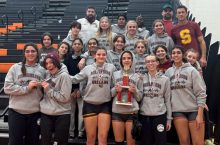
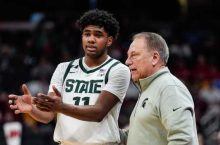








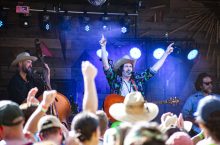

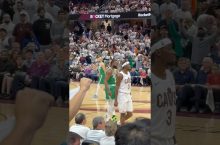
 @Boston Celtics #NBA #Basketball #Celtics #JaysonTatu…
@Boston Celtics #NBA #Basketball #Celtics #JaysonTatu…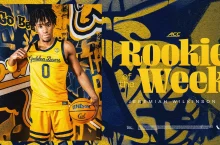
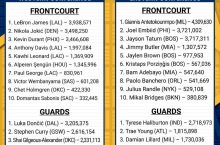
 #NBA #basketball #NBAXmas #Jalen…
#NBA #basketball #NBAXmas #Jalen…

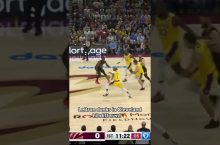





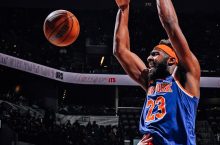

 #McLaren #F1 #Gingerbread #CapCu…
#McLaren #F1 #Gingerbread #CapCu…

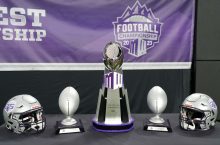




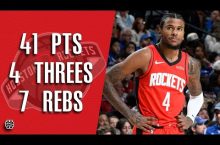


 CMA Members get access to my “AXEL TECHNIQ…
CMA Members get access to my “AXEL TECHNIQ…
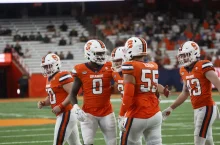

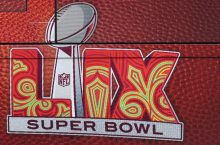
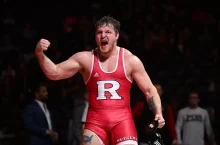

 #rugby #haka
#rugby #haka